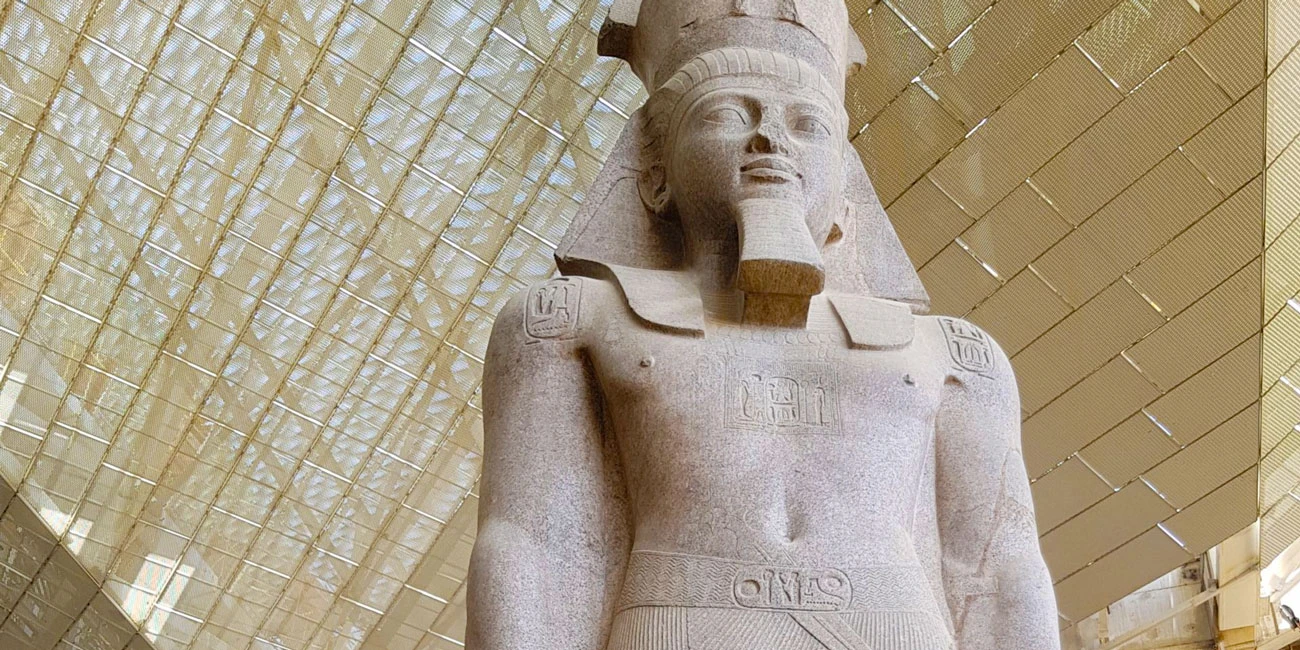Unveiling Ancient Egypt
Walking into the Grand Egyptian Museum feels like stepping through the pages of history. The sheer scope of its collections reflects the rich tapestry of Egypt’s past, displayed in a way that brings artifacts closer to visitors than ever before. With more than 100,000 pieces inside, the museum does more than tell the story of ancient pharaohs; it celebrates daily life, art, technology, and belief systems that shaped a civilization. Every gallery reveals another layer, giving travelers a true sense of Egypt’s long and influential heritage.
The Treasures of Tutankhamun
The highlight for many visitors is the remarkable collection from the tomb of Tutankhamun. Laid out for the first time in its entirety, this exhibition is the largest display dedicated to a single ancient ruler anywhere in the world. More than 5,000 objects—some never shown to the public before—fill these galleries, revealing the wealth, artistry, and mystery surrounding the boy king.
Key reasons why Tutankhamun’s treasures are so captivating:
- Never-before-seen objects: The museum showcases artifacts recently restored and studied, such as personal games, ceremonial items, and delicate textiles found in the king’s tomb.
- New presentation: Items are arranged in a way that mirrors how they were originally found in the tomb, letting visitors understand their context and importance.
- Iconic pieces: The golden death mask, gilded chariot, and bejeweled sandals remain star attractions, carrying the sparkle and craftsmanship of ancient Egypt into the present.
Walking through this part of the museum, visitors feel the echoes of Howard Carter’s discovery and see the young pharaoh as both legend and boy. Each case tells not only of riches but also of rituals, dreams, and the search for eternal life.
Beyond the Pharaohs: Highlights of the Collection
While Tutankhamun’s world has a powerful pull, the Grand Egyptian Museum’s holdings stretch much further. The broader collection provides a window into Egypt over thousands of years. It is a breathtaking mix of artistry, science, and everyday experience.
Here are some of the most remarkable highlights scattered across the exhibitions:
- Statues of gods, kings, and workers: From towering granite images of Ramses II to lifelike wooden models of laborers, the range gives visitors a sense of scale, diversity, and human connection.
- Papyri and writings: Ancient scrolls reveal stories of creation, wisdom texts, and even love poems—documents that shaped how Egyptians thought and felt.
- Jewelry and ornaments: Gold necklaces, silver bracelets, and elaborate earrings showcase brilliant design, showing how style mattered across all classes.
- Household items: Everyday objects like pottery, musical instruments, and woven baskets bring ancient life into focus, revealing the skills and habits of regular Egyptians.
- Tools and technology: Intricate surgical tools, farming equipment, and mathematical devices highlight Egypt’s advanced thinking long before many other ancient societies.
- Funerary goods: Mummies, painted coffins, and canopic jars offer glimpses into beliefs about the journey after death.
This range lets visitors trace the arc of ancient Egypt from the earliest villages to the times of Roman rule. The careful displays, clever lighting, and multilingual signs all help make these objects feel present and personal, even as they tell stories from thousands of years ago.

Visiting the Grand Egyptian Museum
A visit to the Grand Egyptian Museum is an experience that combines the fascination of ancient wonders with the comfort of modern amenities. Every detail is designed to make your day as smooth and memorable as possible. From reserving your tickets to planning a family day out, here’s what you need to know before you go.
Planning Your Visit: Tips for Reserving Tickets, Best Times to Visit, Recommended Tour Routes, and Accessibility for Different Visitors
Booking your visit in advance is strongly recommended. The museum offers online ticketing through its official website, allowing you to pick your preferred date and entry time. Same-day tickets may be available at the door, but advance booking helps avoid long waits, especially during peak travel seasons.
The museum is busiest on weekends and public holidays. For a quieter experience, visit on a weekday morning right after opening. Early hours give you more space in the galleries and less crowded rest areas.
When planning your visit, consider these key points:
- Opening hours: The museum typically opens at 9 a.m. and closes at 7 p.m., but always check the official website for updates.
- Recommended tour routes: Start in the grand atrium with the Ramses II statue. Follow the main route through the Tutankhamun galleries, then explore the thematic zones organized by timeline or subject. Printed and digital maps are available at the entrance.
- Guided tours: Both in-person and audio guides are available. In-person tours are led by trained guides who share in-depth stories about key artifacts. Audio guides, available in several languages, let you explore at your own pace.
- Accessibility: The museum is fully accessible for visitors with mobility needs. Wide ramps and elevators connect all public areas. Accessible restrooms and wheelchair rentals are available near the entrance. Braille signage and hearing loop systems help visitors with visual or hearing impairments.
- Amenities: On-site dining, gift shops, ATMs, luggage storage, and shaded outdoor seating areas round out the facilities. Water refill stations are located throughout the site.
Remember to bring a hat and sunscreen if you plan to explore the museum’s outdoor courtyards, especially during warmer months. Comfortable shoes are a must—the complex is large and you’ll do a lot of walking.
Family-Friendly and Educational Experiences: Facilities and Programs for Children, Students, and Group Visitors
The Grand Egyptian Museum welcomes families, school groups, and curious young minds. The museum’s designers added practical features and creative programs to keep younger visitors engaged from start to finish.











